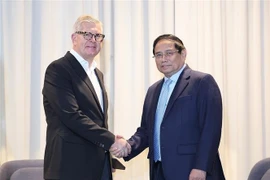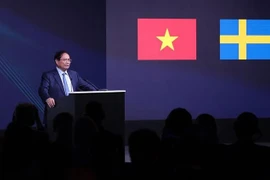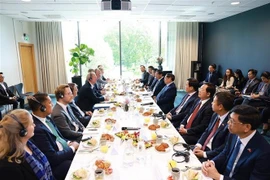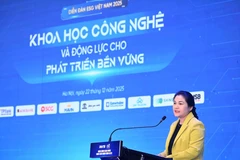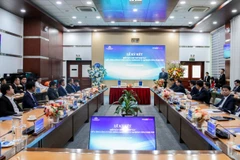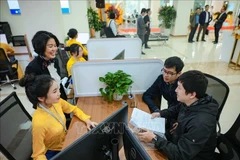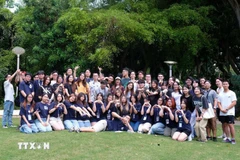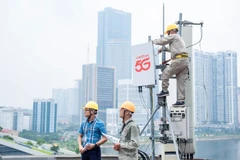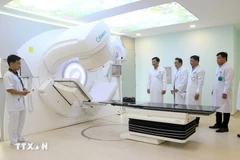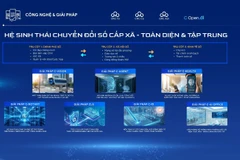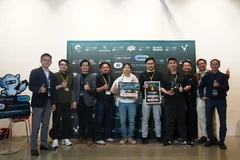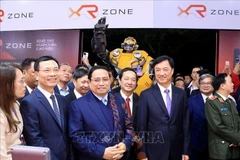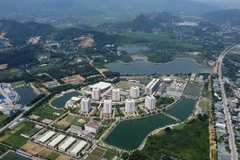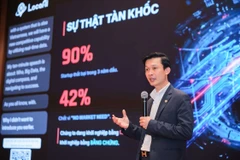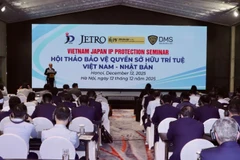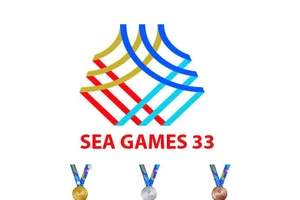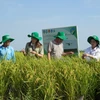Stockholm (VNA) - Prime Minister Pham Minh Chinh visited and held a working session with representatives of the division of nuclear science and engineering (NSE) in the Physics Department at the Royal Institute of Technology (KTH) of Sweden on June 13 morning (local time), during which he called on the Swedish side to set up cooperation with Vietnam in nuclear energy technology.
A representative of the NSE division said it is developing a nuclear power technology that is more cost-effective, safer, fuel-independent, and capable of early deployment. The representative noted that this technology is well-suited to Vietnam as it can be deployed in areas with limited space or in remote and mountainous regions.
PM Chinh commended the NSE division’s accomplishments, particularly technologies compatible with Vietnam’s context, reaffirming Vietnam’s commitment to deepening its partnership with Sweden in a more practical and effective manner.
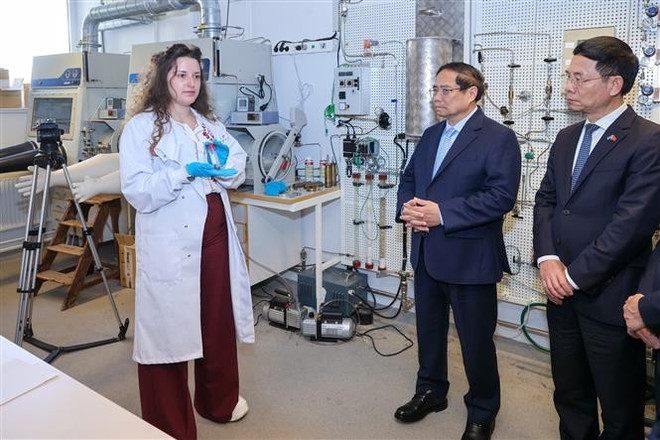
He highlighted that his trip marked the establishment of a sectoral strategic partnership in science, technology, innovation, and digital transformation between Vietnam and Sweden, with nuclear energy for peaceful purposes identified as a key area for enhanced cooperation.
The PM revealed Vietnam’s plan to develop nuclear power in the near future, and called on the Swedish side to assist Vietnam in developing and refining legal and policy frameworks for the use of nuclear energy for peaceful purposes; training and developing human resources; ensuring nuclear safety; and conducting training and drills to improve incident management capabilities.
He called on the NSE division to establish a partnership with the Vietnam Atomic Energy Institute (VAEI) through a cooperation agreement, focusing on research, experience sharing, and human resources training.
The NSE division said it is willing to cooperate with and assist Vietnam, beginning with support to the Southeast Asian nation in developing regulations, standards, and technical norms concerning the use of nuclear energy for peaceful purposes.
Sweden was among the pioneers in harnessing nuclear energy for electricity generation. At its peak in the 1980s, the country operated 12 nuclear reactors, which supplied up to 50% of the electricity demands in the country.
Currently, nuclear energy continues to play a key role in Sweden’s energy structure, accounting for around 30% of the European country’s electricity output, with six reactors in operation at three nuclear power plants. Sweden has recently shifted its policy toward expanding and modernising its nuclear energy sector, viewing nuclear energy as essential for achieving climate goals, especially as renewable energy sources remain insufficiently stable to meet rising energy demands.
Backed by modern technology and policy support from the government, Sweden is pursuing a stronger nuclear future by expanding its reactor network and modernising its energy system, and addressing safety and waste management challenges to ensure sustainable development./.

